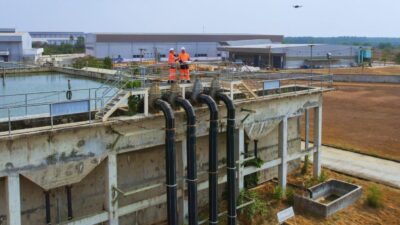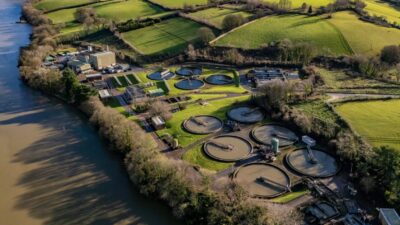
Time to get real about hydrogen (and the regulatory tools to do so)
It’s ‘time for a reality check’ on the realistic prospects of progress towards the EU’s ambitious hydrogen goals, according to the European Court of Auditors’ (ECA) evaluation of the EU’s renewable hydrogen strategy.1 The same message is echoed in some recent assessments within member states, for example by… Read More

Financing the green transition: can private capital bridge the gap?
The green transition isn’t just about switching from fossil fuels to renewable or zero-carbon sources—it also requires smarter, more efficient use of energy. By harnessing technology, improving energy efficiency, and generating power closer to where it’s consumed, we can cut both costs and carbon emissions. In this episode of Top… Read More

A map of AI policies in the EEA and UK
Oxera offers an overview of AI-related policies in EEA countries and the UK through an interactive map. This AI Policy Map allows users to follow developments in AI regulation and examine national policy approaches in more detail. Artificial intelligence (AI) is driving technological change at an unprecedented pace, transforming industries,… Read More

From vision to viability: using microeconomics to implement the Strategic Defence Review
After much anticipation, this month the UK government published its long-awaited Strategic Defence Review (SDR). The SDR is the UK’s response to the challenge facing all European countries: namely, how to protect ourselves in a geo-political climate that has become both riskier and more uncertain. Led by former NATO Secretary… Read More

Assessing the profitability of motorway concessions in France
France’s ecological transition demands the modernisation of motorway infrastructure to support electrification, reduce emissions, and align with new mobility trends. As current concession contracts approach expiration, public authorities must establish a framework that achieves ecological goals while optimising public resources. The concession model, which entrusts private entities with managing infrastructure,… Read More

The Big McBroadband index: a recipe for more meaningful cross-country price comparisons
Price benchmarking exercises are an often used tool by policymakers. When comparing prices across countries, common practice is to make purchasing power parity (PPP) adjustments to control for differences in local price levels and the cost of living (e.g. wages, rent, and taxation). This helps shift the focus from… Read More

Investment opportunities in the water sector
A new model (Direct Procurement for Consumers, DPC), and an extension of the Specified Infrastructure Project Regulations (SIPR), are being used as a means of introducing competition into the delivery of new infrastructure in the England and Wales water sector. The current major projects pipeline requires £50bn across 30… Read More

Water mergers: Ofwat’s updated approach
Across industries, mergers and acquisitions play a key role in shaping business landscapes, enabling companies to evolve, grow and innovate. However, they must first undergo assessment by relevant competition and regulatory authorities to ensure that such structural changes do not distort competition, limit regulatory effectiveness (where appropriate), or produce unintended… Read More

One year on: developments in artificial intelligence (AI)
In this episode, one year on from their conversation in the very first Top of the Agenda podcast, Dr Helen Jenkins welcomes back Professor Richard Susskind CBE. Together they delve into the themes in Professor Susskind’s new book, ‘How to think about AI: A guide for the perplexed’, and share… Read More

Economics of the Data Act: part 2
As the world becomes increasingly interconnected through smart devices and data-driven technologies, there challenges and opportunities presented by the data created in this process 1. Recognising this, the European Commission (EC) has introduced its Data Act, a landmark regulation designed to set clear guidelines for accessing and… Read More

